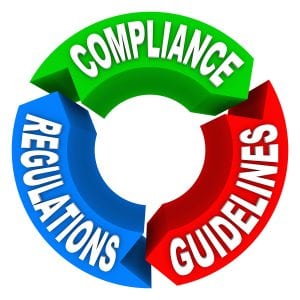 The pre-adverse notification is important for two reasons.
The pre-adverse notification is important for two reasons.
The first is that it is required by the Fair Credit Reporting Act. The FCRA, 15 U.S.C. §1681b(b)(3)(A), requires that before taking any adverse action based in whole or in part on a consumer report used for employment purposes, the person intending to take such adverse action shall provide to the consumer to whom the report relates: (a) a copy of the report, and (b) a description in writing of the rights of the consumer under the FCRA, 15 U.S.C. §1681g(c)(1).
In a recent class action complaint, Wills-v-Starbucks_Class-Action-Complaintthe plaintiff alleges that Starbucks did not follow that notification requirement of the Fair Credit Reporting Act. The FCRA, 15 U.S.C. §1681b(b)(3)(A), requires that before taking any adverse action based in whole or in part on a consumer report used for employment purposes, the person intending to take such adverse action shall provide to the consumer to whom the report relates: (a) a copy of the report, and (b) a description in writing of the rights of the consumer under the FCRA, 15 U.S.C. §1681g(c)(1).
After his in-person interview, Plaintiff was preliminarily hired for the position prior to the results of his Criminal background check. The Plaintiff has no criminal history. Having no criminal history, he did not anticipate any problem with his background report. On September 19, 2015, Plaintiff contacted the Starbucks manager to advise of his availability so she could plan accordingly for the drafting of the next schedule. In the meantime, Starbucks obtained and used a background report prepared by Accurate Background, Inc. to make an employment decision regarding Plaintiff. The consumer report provided to Starbucks included a statement that the plaintiff had been convicted twice of domestic violence. Plaintiff has never used the name Kevin Willis and does not spell his name like Kevin Willis, nor has he ever resided in Minnesota. The information was erroneously mixed into his information by Starbucks Background reporting company. Upon receipt of the consumer report, Starbucks took adverse employment action against Plaintiff by informing him telephonically that he could not work for Starbucks.
Starbucks typically does not provide job applicants with a copy of their consumer reports before it takes adverse action against them based on the information in such reports, despite being required to do so by §1681b(b)(3)(A) of the FCRA.
The second is that in a country of more than 200 million working adults and given the method used of researching criminal convictions it is quite possible that two individuals could have the same name, the same date of birth in the same jurisdiction. One could have a criminal conviction, the other would not. A primary reason that Congress required that a person intending to take an adverse action based on information in a consumer report provide the report to the consumer before taking the adverse action is so the consumer has time to review the report and dispute information that may be inaccurate, or discuss the report with the prospective employer before adverse action is taken. Federal courts have held that the prospective employer must provide the report to the consumer “a sufficient amount of time before it takes adverse action so that the consumer may rectify any inaccuracies in the report.
Starbucks could be liable for Statutory damages in the amount of not less than $100 and not more than $1,000 per violation per Class member, pursuant to 15 U.S.C. § 1681n(a)(l);
- Punitive damages to be determined by the jury, pursuant to 15 U.S.C. § 1681n(a)(2);
- Attorney fees and costs, pursuant to 15 U.S.C. § 1681n(a)(3); and
- Such other relief as may be just and proper.
So, you do the math as far as dollar risk to Starbucks. Probably there are literally thousands of people who could participate in this class action lawsuit. Multiply thousands times just $100 and you arrive at some big dollars.


